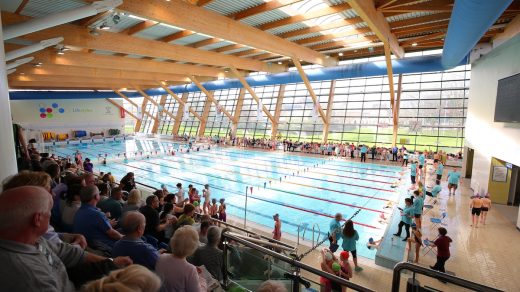Guide to choosing a sixth form

It is that time of the academic year when Year 10 students will begin preparing for their GCSEs, before completing their studies and exams in Year 11. But what then? Many will go on to study at a sixth form or college, while others will start apprenticeships and post-16 training opportunities.
Unlike choosing a secondary school, students will have their own ideas about where they want to study their A-levels and BTECs. However, parents and carers can still be involved to help and guide. Here are Educate’s top tips for choosing the best sixth form.
1. Attend open evenings
Just like when choosing a secondary school, it is important to attend sixth form open evenings too. This applies even if you are planning to continue your education in your current secondary school, as it will be quite different. Prepare some questions beforehand. As the sixth form will offer different and possibly fewer subjects than what you studied for your GCSEs, it is important to enquire about the subjects you want to take. While the sixth form itself might have a good reputation, do the subjects you want to take have consistently good results?
Also enquire about facilities, such as quiet spaces or libraries where you can study. This is especially important in sixth forms that are part of a secondary school, so you can have a place where younger students will not be a distraction. For the subjects you want to study, enquire too about the classroom sizes – perhaps you work better in a class with fewer students, so it is good to see if they will cater to your needs.
2. Find out what pastoral care is offered
Taking A-levels or BTECs can be a stressful time for students, so it is really important to consider how different sixth forms support the physical and emotional welfare of its young people. There should be a support system in place for students’ individual needs, to help guide you through career options, writing your personal statement (if you are attending university) and ultimately maximising all students’ potential.
3. Don’t follow friends
Some of your friends might be clear they will be attending a particular sixth form because of how ‘great’ it is, or their sibling attended, or the subjects they want to take are prioritised. This is good for them, but do not let your friends be a considerable influence on your decision, as you need to choose the best sixth form for you. The choice you make will significantly impact how well you do in your A-levels or BTECs and potentially what you will do next after sixth form. Therefore, you should do your research properly and carefully consider which sixth form is in your best interest.
4. Check the timetables
While your chosen sixth form might have all the subjects you want to take, this may not necessarily mean you can take them all. This is particularly important for sixth forms that are part of a secondary school, where the teaching schedule across the school and sixth form can result in less flexibility in the sixth form subject timetable. For example, you may want to study three subjects that cannot be studied together because subject lesson times clash. Do your homework and check.
5. Consider what grades you will achieve at GCSE
Based on your performance throughout your years at school, your teachers should be able to give you predicted grades for your GCSE exams. Generally, sixth forms will require grade 4s and above in maths and English. Some sixth forms will require grade 7s in certain subjects. Make sure you know these requirements.
6. Think about the location of the sixth form
Sixth form is a step into gaining more responsibility. Chances are you will be making your own way to sixth form. If the sixth form you are attending is far away, you will have to get up earlier and ensure you arrive at your classes on time. This is a big stepping stone in gaining independence for yourself and developing resilience. It will also make you more punctual, preparing you for working life. However, if it is too far, this could lead to a decrease in motivation and could possibly result in you missing classes. It might also be costly to travel every day and the extra time travelling may give you less time to revise when it comes to exams.
7. Enquire about extra-curricular activities
Depending on what subjects you want to take, some extra-curricular activities might make an enormous difference. Taking an A-level in music? Perhaps there is an orchestra you could get involved with. English literature? A book club might boost your motivation to read more. If you already know you see yourself in politics someday, a debate club might be what you need. See if they offer Extended Project Qualifications (EPQs), as these are worth half an A-level and are projects led by the students themselves. If you ask, some teachers might even allow you to start or run a club and guide the younger year groups. Some activities might offer activities and trips outside of school too, which can develop additional life skills and grow new friendships.
Overall, choosing a sixth form is a big decision that you will make for yourself. Make sure to thoroughly research the sixth forms you have in mind and attend the open evenings so you can get an idea of whether the sixth form is right for you. Do not be afraid to ask questions such as what facilities are offered and how well your chosen subjects do. Find out what pastoral care is offered to see if your physical and emotional wellbeing will be supported by the sixth form. Make sure to check the timetables so your desired subjects do not clash. Note the location of your sixth form – if it is far away, getting up early and travelling yourself will help you to develop resilience and independence. Consider your personal needs too, and make sure your sixth form life and home life are balanced.







